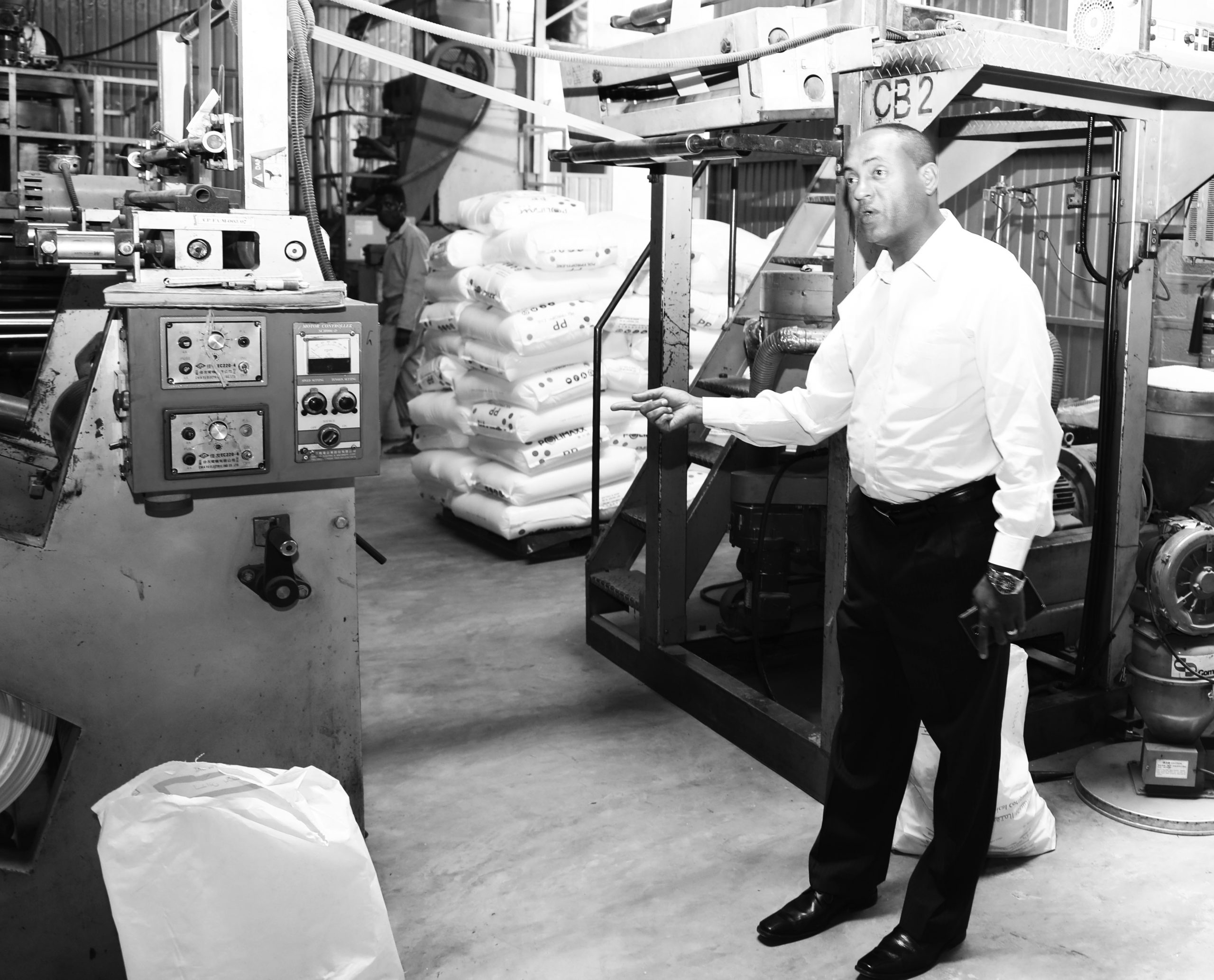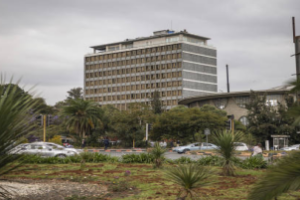
He hates procrastination. What makes him upset is an indolent worker who sits ideal instead of working harder to make his/ her life a success. But, those who know him well work with him harmoniously. Following the various challenges he faced, an Ethiopian businessman changed the livelihood of many.
He goes by Kebede Berta. He was born and raised in Addis Ababa. After attending primary and secondary school education, he then attended Addis Ababa University’s extension program to study civil Engineering as a major. Unfortunately, after attending his education for three consecutive years, he was forced to quit education due to financial difficulties.
He observed trade activities of automotive spare parts in his village, through time; he joined the sector right after dropping out of his university education. As a broker, he purchased vehicle spare parts found rarely from old car owners and earned living by selling them to spare part shop owners.
Kebede recently told The Ethiopian Herald that understanding that such a business journey is not profitable, he decided to open a shop together with his friend. He deliberated on the issue with his friend and agreed upon the issue. They then opened spare parts shop at Teklehaimanot area in 1986 EC at a cost of 500 birr contributing 250 Birr each.
Though the shop was too small to hold numerous materials, he and his friend expanded the task than ever before and maximized their profit as the time passed as he was very much committed to growing. Though the automotive spare part task requires a huge amount of capital, Kebede and his friend maximized their profit and be able to save more money within two years time.
Worked as a joint venture business until 1988 EC, Kebede and his friend agreed to conduct business separately and opened a shop for each. The situation was an opportunity for him to upgrade the job than ever before. As he was a man of his work, instead of developing bad behaviour spending his precious time and money with wrongdoers, Kebede preferred to spend the money to further expand the business. His first option was importing spare parts and accordingly started the work after getting the required license.
As to him, he then found out that the work is profitable. When his capacity is getting stronger, he strived to continue his education. Kebede, who adores education, joined a Business College and begun to study business administration as a minor subject in the extension program. However, as the import and export trade requires repeated travel abroad and stay there for long, he was not able to attend class properly and finally dropped out again. He, later on, began to attend short term training that is imperative for his job.
As he was spending his full time for import and export trade, he has managed to achieve moderate success. He was then able to gain a huge amount of capital within a few years.
Apart from import and export trade, he made a feasibility study to engage in the industry sector. In the study, he understood that Ethiopian manufacturing industries have been facing challenges in relation to packaging products.
Especially, he understood that most of the manufacturers did not get acceptance by the international market due to low quality and high demand for standardized packaging. As a result, the situation forced manufacturers to import packaging materials from abroad. This encouraged him to join the packaging industry without delay.
Accordingly, he first got investment license to establish cartoon, the plastic packaging industry in Addis Ketema Subcity or Lebu industry village, took 2000 meter square land in the form of lease and allocated a huge amount of capital to realize his dream. Importing state-of-theart machines and foreign professionals, he begins to supply various packaging products for local manufacturing companies.
Absence of skilled manpower is the very challenge for the underdeveloped packaging industry in Ethiopia. “I did not escape from facing such a challenge repeatedly;” Kebede said adding “apart from hiring professionals in the market, we train our personnel to address the challenge faced. In doing so, he is able to transfer knowledge and expertise from foreigners to local people and continues to supply plastic and carton packaging products.
He began the production of cartoon and plastic. However, fearing that the activity may create chemicals of various kinds and pose damage, he stopped production of cartoons immediately and continued to produce plastics packaging.
With in a short period of time, under the factory named Classic Packaging Private Limited Company, he started to supply standardized packaging products for textile, food, beverage producing companies and others.
“Now, the factory produces and supplies sticker of various kinds to factories producing packed water and other products thereby substituting imported packaging,” he said. By this, the factory is contributing its part to saving hard currency for the country. Though the production capacity of the factory is 5,000 tons, currently is producing 1500 tons of plastic packaging products. “We are planning to produce with full capacity in the near future.”
His company is in transformational phase as it is undertaking various expansion projects. Following the agreement it reached with the World Bank and the Industrial Parks Development Corporation, the company has become one among selected local companies to join in the manufacturing sector actors that access financial assistance. Because the company has got financial assistance, it purchased and imported modern machinery which has an impact in creating additional capacity to produce new products.
In the expansion project, the company plans to benefit customers engaged in export trade such as agro-processing industry, coffee and textile factory. He made preparations to supply packaging products for local manufacturers involved in producing pasta, macaroni and milk and milk products.
At this time, Kebede’s factory created jobs for 150 citizens. “It also hired professionals that came from India and has been transferring knowledge and expertise to local citizens in the factory. The factory now works 24 hours a day though shifts.”
“Products ranging from shoe to food processing require quality and standardizing packaging products”, Kebede said adding that in this regard it is difficult to say enough tasks have been undertaken in Ethiopia. Therefore, in the future, if there will be land and foreign currency supply, Kebede is planning to open a new packaging materials production factories which would create a job for more than 50,000 citizens.
Married and a father of four, Kebede said hard work can bring meaningful change on one’s life. “The youth should avoid idleness, have a vision to work hard, change their life and their country.”
The Ethiopian herald June 4,2020
BY GIRMACHEW GASHAW





